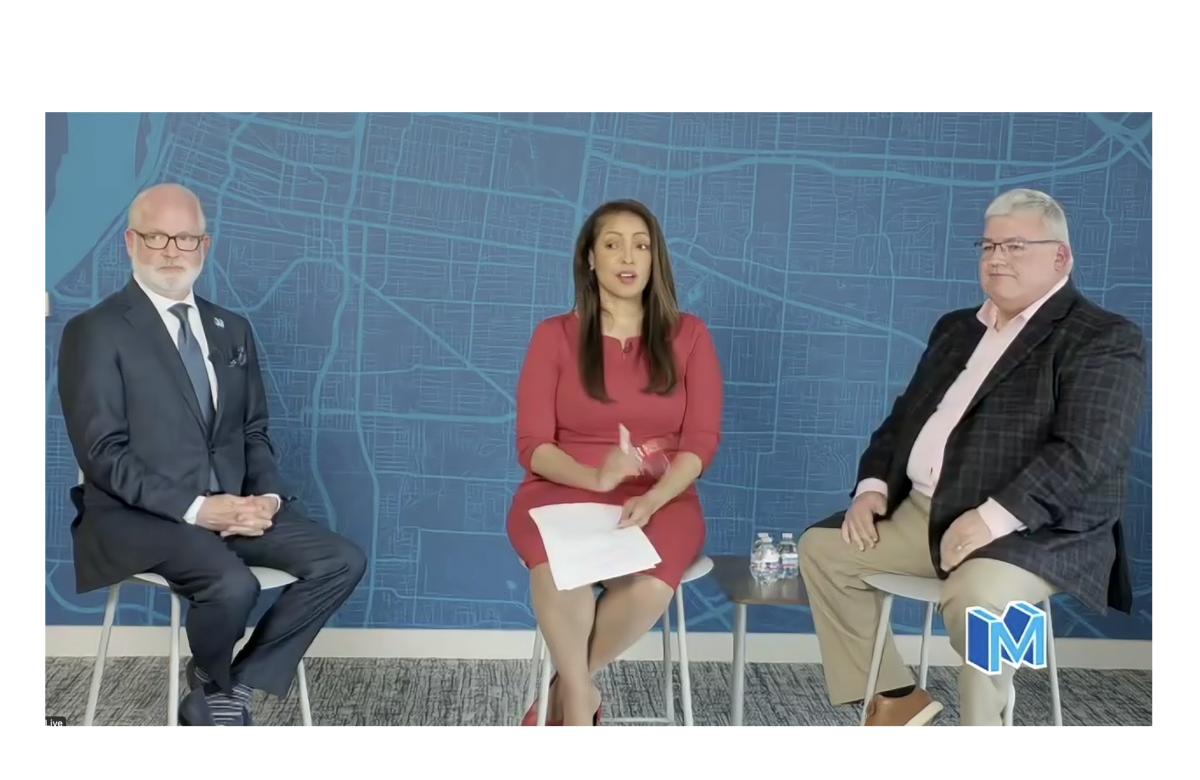The Greater Memphis Chamber attributes their “lack of transparency” regarding the xAI project to market stability and competitive advantage.
“Confidentiality is actually really important when it comes to economic development projects,” Bobby White, chief government affairs officer for the Chamber, said. “We have unfortunately experienced this in the past where projects and information about them have slipped and become public knowledge, and we’ve lost projects.”
These comments were made Wednesday during a webinar hosted by the Greater Memphis Chamber to address community questions about xAI’s turbines, water usage, and more. Media personality Kontji Anthony moderated the conversation and called xAI the biggest economic development project in Memphis history and noted the controversy looming around it.
Residents and elected officials, such as Councilwoman Yolanda Cooper-Sutton and Representative Justin J. Pearson, have criticized the city and company for the absence of public input and knowledge. Many have voiced concern about the effects it will have on citizens in Southwest Memphis.
Anthony said the purpose of Wednesday’s forum was to clear up misconceptions around the project.
White said some of these misconceptions had been heard repeatedly — specifically those surrounding water usage. He clarified that the company is not using 1 million gallons of water a day to cool the supercomputer. Instead, it is operating on a closed loop system, with no water from the aquifer being used for industrial use.
“Essentially water comes in and cools the supercomputer,” White said. “That closed loop system is why xAI is paying a water bill that’s probably comparable to what you’re paying at your house.”
He estimated that xAI is paying less than $1,000 every month because it is recycling water. He also said the company is building Memphis’ first-ever wastewater recycling facility, marking an $80 million investment.
The Chamber wanted to bring in experts to engage in conversation about gas turbine usage. Recently, the Southern Environmental Law Center ( SELC) found that 35 turbines had been operating near the facility — 20 more than previously reported.
Shannon Lynn, a principal consultant for Trinity Consultants, located in Little Rock, Arkansas, said both the temporary and permanent turbines have sparked concern. Lynn said only 15 are set to be permanent, which the company has submitted permits for.
Lynn noted concerns about formaldehyde, nitric oxide, and dioxide emissions. He said the turbines are natural gas fired and “simple products of combustion.”
“If you burn gas, you’re going to get products of combustion, and that’s what you have with these turbines,” Lynn said.
A viewer asked Lynn if he would feel safe living in close proximity to the turbines. Lynn said he has had experience with this in Arkansas, as a data center was built within two miles of his home. He said if the control technology, equipment, and programs were in place along with working with a regulatory body he would feel safe.
Ted Townsend, president and CEO of the Chamber, said the city is already seeing the positive effects of landing the “world’s largest supercomputer,” representing a “tremendous investment.”
He said this deal has attracted other companies to Memphis, creating more jobs and investments into the Memphis economy.
“Success is now,” Townsend said. “I think over the next five, 10, 20 years you’re gonna see a higher concentration of this tech innovation and we’re really the epicenter of AI computing if you think about having the power of a supercomputer localized right here in Memphis.”
